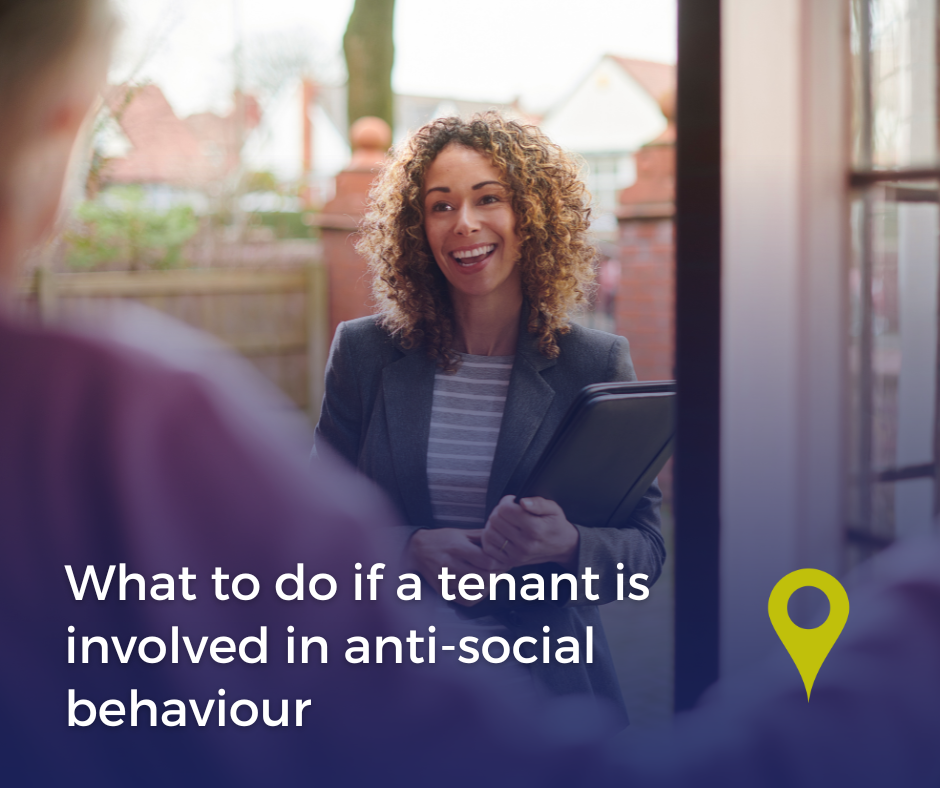What to do if a tenant is involved in anti-social behaviour
As a letting agent or landlord, how can we prevent tenants’ anti-social behaviour?
The English Private Landlord Survey found that in 2021 just under 32% of landlords ended their tenancy due to anti-social behaviour.
According to the Crime and Disorder Act 1998, anti-social behaviour can be defined as “acting in a manner that caused or was likely to cause harassment, alarm or distress to one or more persons, not of the same household”.
Anti-social behaviour relating to housing, includes:
● Loud music, TV, or noise at all times of the day
● Rubbish or littering outside of a property
● Drunken behaviour that disturbs others
● Intimidating or harassing people
● Using the property for illegal purposes
More serious anti-social behaviour can also include illegal drug activities and modern slavery.
Landlords and letting agents can also face consequences for their tenants actions, with some facing fines of over £150,000 in repairs due to drug farms in their property. The government continues to provide plans and legislation to tackle anti-social behaviour, but here’s what landlords and letting agents can do to prevent it.
How can landlords and letting agents prevent anti-social behaviour?
To prevent anti-social behaviour, it is important for landlords and letting agents to conduct pre-tenancy checks to know who they are renting to. If you still feel cautious, you can conduct a meeting with the prospective tenant(s) before signing the tenancy agreements.
This meeting allows the letting agent and/or landlord to feel safe and secure, by discussing the property and explaining any anti-social behaviour clauses the tenant needs to be aware of.
What are the next steps if a tenant commits anti-social behaviour?
If a tenant is committing anti-social behaviour, it can be a breach of their tenancy agreement.
Before a landlord or the letting agent can evict a tenant for their anti-social behaviour, there are a few steps you can take. Including sending a written warning which explains the consequences if their behaviour continues. If their behaviour does not change after the warning, a landlord can consider contacting the police or local authority.
In more serious cases, under the Anti-Social Behaviour Action Plan, landlords and letting agents can evict tenants if they continuously take part in anti-social behaviour.
How to spot illegal drug activity in a rental property and what you should do
It is important that both landlords and letting agents are aware of what is happening in their rental properties to further prevent anti-social behaviour. This can be done by conducting regular visits to the property, with 24-hour notice provided.
If illegal drug activity is suspected at a property, here’s what letting agents and landlords should look out for:
● Chemical smells
● Illegal drug paraphernalia
● Black out windows or curtains that weren’t installed before tenants moved in
● Large utility bills
Once a letting agent or landlord is suspicious of any illegal activity conducted at their rental property, they should take action to avoid any repercussions coming back to them.
If a managing agent or landlord feels comfortable doing so, they can speak to the tenants and let them know of their suspicions. Or if they do not feel comfortable, speak with the police as soon as possible, so that they can conduct a search of the property without you needing to be there.
If there is enough evidence of illegal activity, such as pictures around the property of any suspicious activities, landlords can use a section 8 notice to evict tenants for illegal drug activity, whether that is using or supplying.
However, it has recently been proposed by Conservative ministers to allow “hearsay” evidence in eviction claims for antisocial behaviour as part of the Renters (Reform) Bill amendments.
How are landlords affected by illegal drug activity?
Although, it’s not just tenants who can be affected by illegal drug activity in a privately rented home. For example, in 2022 one landlord in London was faced with £150,000 worth of repairs to their home after illegal cannabis farms were created in their rental properties. The managing letting agent was accused of negligence and taken to court.
Landlords can also be considered liable depending on the circumstances of the offence if they are aware of the activity and haven’t reported it.
According to the Misuse of Drugs Act 1981, a landlord can be liable for the following taking place on their property:
● Producing or attempting an illegal controlled drug
● Supplying or attempting to supply an illegal controlled drug
● Preparing to smoke opium
● Smoking weed, cannabis resin or prepared opium
Further information about preventing anti-social behaviour in your properties contact a member of our staff here.

